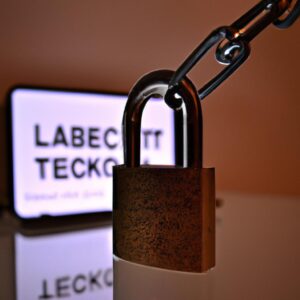What is Public Wi-Fi?
Public Wi-Fi is a type of wireless internet connection that is freely available to anyone in a public place. It’s a great way to stay connected when you’re out and about because it’s usually free, convenient, and widely accessible. But while the advantages of public Wi-Fi are undeniable, there are also associated risks, which is why staying safe while using it is so important.
Benefits of Public Wi-Fi
There are many benefits of using public Wi-Fi. First and foremost, it’s free and easy to access, making it ideal for those who need to stay connected while on the go. Additionally, it’s often faster than other forms of internet connection, and it can be found in most public places, including airports, cafes, hotels, restaurants, and more.
Potential Dangers of Public Wi-Fi
Unfortunately, there are also potential risks associated with public Wi-Fi. For one, it’s less secure than a private or home network, making it more susceptible to hackers and identity thieves. Additionally, cybercriminals can use malicious software, like malware and viruses, to gain access to unsuspecting users’ personal data.
Potential Dangers of Public Wi-Fi
As convenient as public Wi-Fi networks are, they can also be dangerous if the user is not aware of the risks. Some of the biggest threats to watch out for are identity theft, malware, and hacking.
Identity Theft
Identity theft occurs when someone obtains your personal information and uses it to commit fraud or other crimes. They may do this by using malicious software or simply by snooping through unprotected networks.
Malware
Malware, short for “malicious software”, is a type of software specifically designed to gain access to sensitive data without the user’s knowledge or permission. It can be sent through emails, instant messages, or even downloaded inadvertently from certain websites.
Hacking
Hacking is when someone gains access to a network or computer without the owner’s permission. Such attacks can range from small attempts to gather information to large-scale attacks on networks.
When using public Wi-Fi, it is important to take certain proactive measures in order to protect your privacy. First, be aware of online ads that could contain hidden malware. Secondly, consider signing up for secure internet services that can help protect your browsing data from being monitored or tracked. Secure sites use encryption technology to create a private connection, making sure that any data you share remains safe and secure. When signing up for these services, make sure to read the terms and conditions carefully.
You should also familiarize yourself with the security measures on public Wi-Fi networks. Is the network encrypted? Is it password-protected? It’s essential to ensure that the network is secure before connecting to it. Fortunately, there are several tools available that can help you check the safety of a public Wi-Fi network.
Another way to stay secure when using public Wi-Fi is to use a Virtual Private Network (VPN). VPNs create an encrypted “tunnel” between your device and the website or service you are accessing. This helps to keep your data safe from unwanted eyes. When researching VPNs, look for one that offers reliable services and that uses the latest security protocols.
Finally, be aware of malicious sites that could be collecting user data without you even knowing. If something looks suspicious, be sure to avoid it. The best way to protect yourself and your data is to be proactive and stay alert.
How to check if a public Wi-Fi network is secure and encrypted
When using public Wi-Fi, it’s important to ensure the network you’re connecting to is secure and encrypted. Public Wi-Fi often appears with no password protection, but that doesn’t mean it is safe to use. Here are some ways you can check if a public Wi-Fi network is secure:
- Firstly, look at the name of the Wi-Fi network. If it looks like something generic, like “public-wifi-1”, then it is most likely not secure. Networks safe for use should have names that relate to the establishment or business offering them.
- Always make sure the website address you’re visiting starts with “https” – the “s” stands for secure. If the address does not start with “https”, then the connection is not secure.
- Make sure that the Wi-Fi network has up to date security protocols such as WPA2. Older protocols, such as WEP, are not secure.
- When signing into a public Wi-Fi network, use two-factor authentication where available. This will require a separate piece of information to be entered in order to gain access, adding an extra layer of security.
By taking these steps to protect yourself, you can help keep your data safe while using public Wi-Fi networks.
Using VPNs to Protect Sensitive Data
When using public Wi-Fi networks, it is important to protect any sensitive data. One of the primary ways to do this is through the use of a Virtual Private Network (VPN). A VPN acts as a secure tunnel between two or more devices, meaning that anyone trying to intercept your data must go through the security of the encrypted tunnel.
To select the most reliable service for your needs, there are several things to consider. First, you should look for a VPN provider that offers a variety of server locations so that you can send and receive data securely from around the world. Secondly, a good service will also provide unlimited bandwidth, meaning that you’ll never run out of data even when using the VPN for long periods of time. Lastly, you’ll want to make sure the VPN service you choose is secure, and regularly updated with the latest security features.
Once you have found a reliable provider, follow their instructions to configure the VPN on your device. This will essentially allow you to create your own “secure tunnel” between your device and the internet. That way, all the data passing through it, including emails, passwords, and other sensitive information, will remain safe and secure while you are using public Wi-Fi networks.
Beware of Suspicious Websites
When using a public Wi-Fi network, it’s important to be aware of any suspicious websites that may secretly be gathering your data. These websites appear genuine and often offer free services such as music or movie streaming. However, upon closer inspection you may find that they are collecting personal information or using malicious software to hack into your device.
It’s always a good idea to avoid clicking on links from websites that you can’t trust. Instead, take the time to research the source of the website and look for reviews and ratings online.
Tips For Adjusting Settings For Maximum Safety
Making sure your settings are in the correct place is one of the most important steps to take when it comes to staying safe on public Wi-Fi networks. Here are some tips to help you get started:
- Turn off your device’s Wi-Fi when not in use – Most devices have a setting that allows you to turn off your Wi-Fi when not in use. This will make sure that no additional devices can access your data.
- Disable file sharing – Some devices may enable you to share files over a public Wi-Fi connection. Disabling this feature will prevent unauthorized users from gaining access to your files.
- Limit app notifications – Many applications tend to push notifications even when the user is connected to a public Wi-Fi network. Limiting these notifications can help protect your data from prying eyes.
- Enable encryption – Encrypting your connection is one of the best ways to protect your data while using public Wi-Fi. Many devices have built-in encryption options, which should be enabled when connecting to public networks.
- Update your device’s security software regularly – Regularly updating your device’s security software can help protect you from malware and other malicious software. Make sure you are always running the latest security software.
By following these tips, you can ensure that your device’s settings are properly adjusted for maximum privacy and safety while using public Wi-Fi networks.
Overview of Programs to Protect Against Data Theft
Using public Wi-Fi networks can be dangerous if you don’t take the necessary precautions. There are a range of free and paid programs that help protect against data theft, malicious users, and other internet threats. Here’s an overview of the different kinds of programs available:
- Free Anti-Virus Software: Free anti-virus software is available from several reputable companies and is an essential way to protect your computer from malicious software and viruses.
- Firewalls: Firewalls can be used to prevent unauthorized access to your computer, as well as to detect and block malicious activities.
- Proxy Servers: Proxy servers help keep your browsing data hidden from potential attackers.
- Secure Browsers: Secure browsers also keep your data safe and secure when connecting to public Wi-Fi networks.
- Encrypted Networks: It’s also important to use networks that are encrypted, which will help protect your data from prying eyes.
Additionally, there are several paid solutions available for providing more comprehensive security. These services often include features such as additional firewall protection, web-based threat detection, and VPNs (Virtual Private Networks).
Step-by-step guide on how to identify possible signs of data theft
Data theft can be a serious threat when using public Wi-Fi, and it is important to be aware of possible signs that may indicate your data is being stolen. Fortunately, there are some steps you can take to protect yourself from this threat.
One of the most obvious signs of data theft is if you start receiving strange emails or texts related to your online activity. For example, if you receive a message from a website asking for your personal details, even though you have never visited the site before, this could be a sign that someone has accessed your data and is attempting to use it for nefarious purposes.
Another indication that data theft may have taken place is if your device slows down or starts to experience errors when connected to a public Wi-Fi network. This could point to suspicious activity occurring behind the scenes, such as unauthorized downloads or background processes running without your knowledge.
Finally, watch out for unexpected charges appearing on credit cards or bank statements which have been linked to your device. Again, this is a telltale sign that something isn’t right.
By being vigilant and aware of the possible signs of data theft, you can protect yourself from potential malicious activity while using public Wi-Fi networks.
What to Do If Your Data is Compromised
No one likes to think their data will be stolen, but it can happen if you don’t take the necessary precautions when using public Wi-Fi networks. If your data is compromised, there are a few steps you should take to help protect yourself and your information.
- Immediately change passwords for any accounts that may have been affected.
- Contact the credit reporting agencies and monitor credit reports for suspicious activity.
- Place a fraud alert on all your accounts.
- Contact your bank or other financial institutions regarding possible identity theft.
- Keep your antivirus software up-to-date.
- Be aware of any unsolicited emails – they could be phishing attempts.
- Perform online scans with an anti-malware tool.
- Notify law enforcement if you believe you have become a victim of identity theft.
It’s important to stay vigilant and remain aware of any potential signs that your data may have been compromised. With this in mind, remember to take proactive steps to ensure your safety when using public Wi-Fi.
Summary of Important Points
When using public Wi-Fi networks, it is important to be aware of the potential risks that can come with them. Potential dangers include identity theft, malware, and hacking. To protect yourself, it is recommended to be wary of ads or online services that might be collecting data, as well as making sure your connection is secure and encrypted. Using a VPN (Virtual Private Network) can help keep personal and sensitive data safe, and free or paid software solutions can help protect against malicious users. Lastly, being aware of possible signs of data theft, and knowing what to do if data is compromised, will further enhance your security while using public Wi-Fi.
The Value of Staying Safe On Public Wi-Fi
It is important to remember that using public Wi-Fi networks puts your privacy and data at risk. That’s why it is imperative to initiate the necessary precautions to help protect yourself online. With that said, the benefits of using public Wi-Fi can be far reaching. Whether you’re looking to save money on your mobile data plan or simply need a consistent internet connection while traveling, public Wi-Fi provides a great alternative.
By taking the time to understand all the potential risks associated with public Wi-Fi networks and going the extra mile to ensure those risks are minimized, you can enjoy the benefits of public Wi-Fi without compromising your personal data. It is essential to do your research on available solutions and familiarize yourself with different security measures that may apply.
Although using public Wi-Fi networks can be beneficial, it is important to take the necessary safety precautions in order to prevent potential identity theft or data breaches. You now have the knowledge and tools to make sure your data and personal information stay safe wherever you go.
comments: 0











